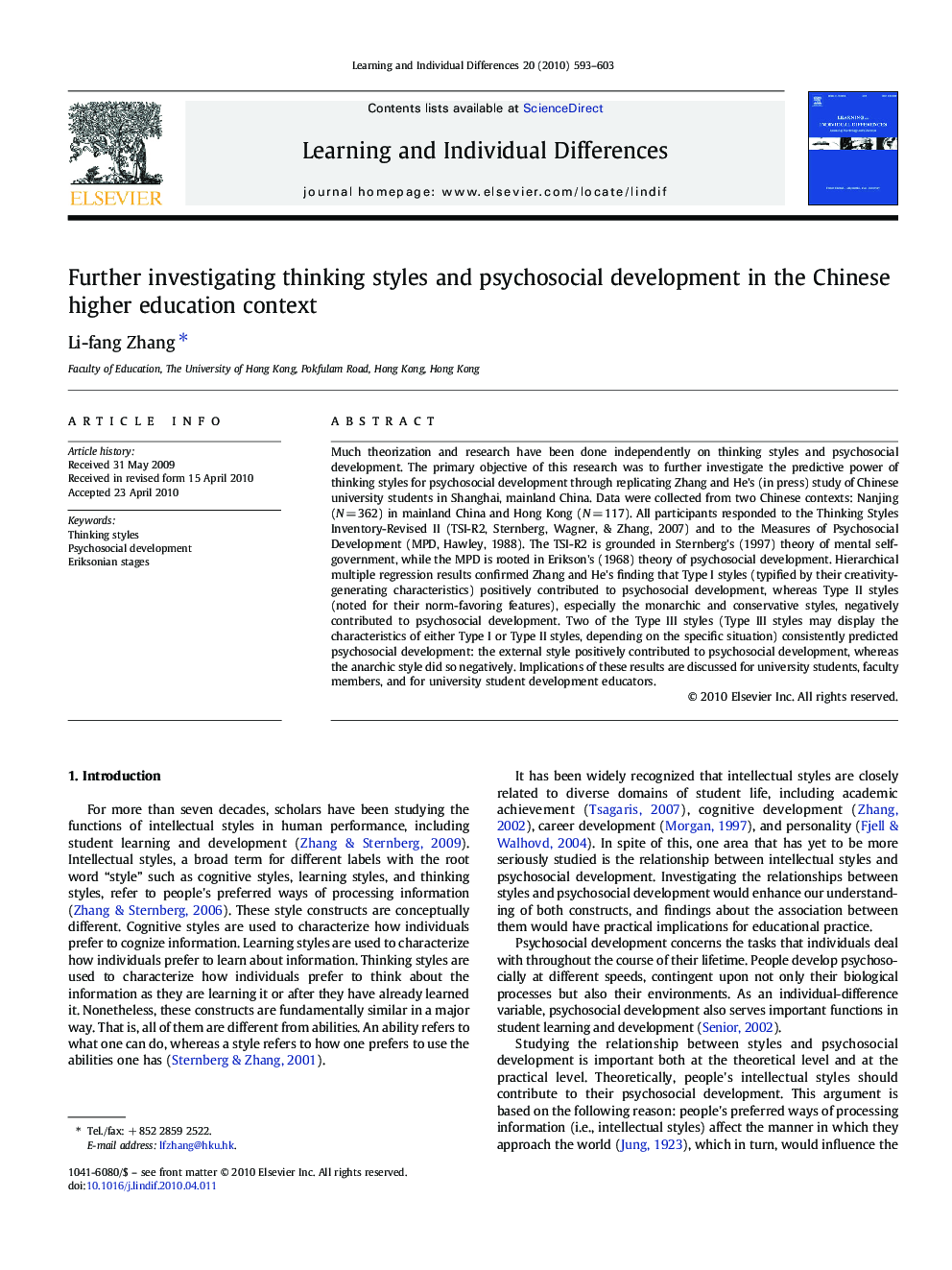| Article ID | Journal | Published Year | Pages | File Type |
|---|---|---|---|---|
| 365365 | Learning and Individual Differences | 2010 | 11 Pages |
Much theorization and research have been done independently on thinking styles and psychosocial development. The primary objective of this research was to further investigate the predictive power of thinking styles for psychosocial development through replicating Zhang and He's (in press) study of Chinese university students in Shanghai, mainland China. Data were collected from two Chinese contexts: Nanjing (N = 362) in mainland China and Hong Kong (N = 117). All participants responded to the Thinking Styles Inventory-Revised II (TSI-R2, Sternberg, Wagner, & Zhang, 2007) and to the Measures of Psychosocial Development (MPD, Hawley, 1988). The TSI-R2 is grounded in Sternberg's (1997) theory of mental self-government, while the MPD is rooted in Erikson's (1968) theory of psychosocial development. Hierarchical multiple regression results confirmed Zhang and He's finding that Type I styles (typified by their creativity-generating characteristics) positively contributed to psychosocial development, whereas Type II styles (noted for their norm-favoring features), especially the monarchic and conservative styles, negatively contributed to psychosocial development. Two of the Type III styles (Type III styles may display the characteristics of either Type I or Type II styles, depending on the specific situation) consistently predicted psychosocial development: the external style positively contributed to psychosocial development, whereas the anarchic style did so negatively. Implications of these results are discussed for university students, faculty members, and for university student development educators.
